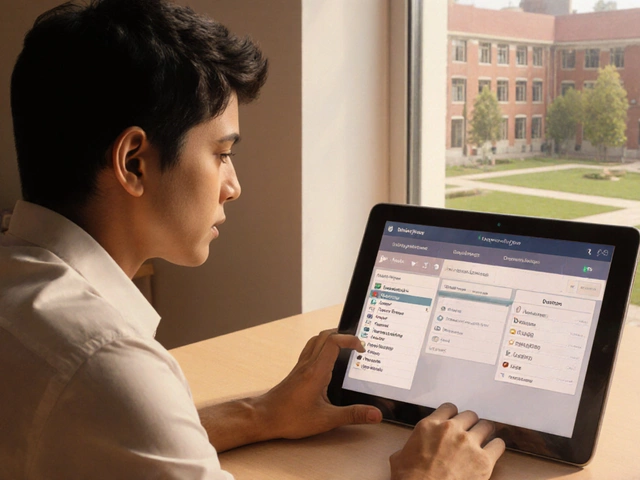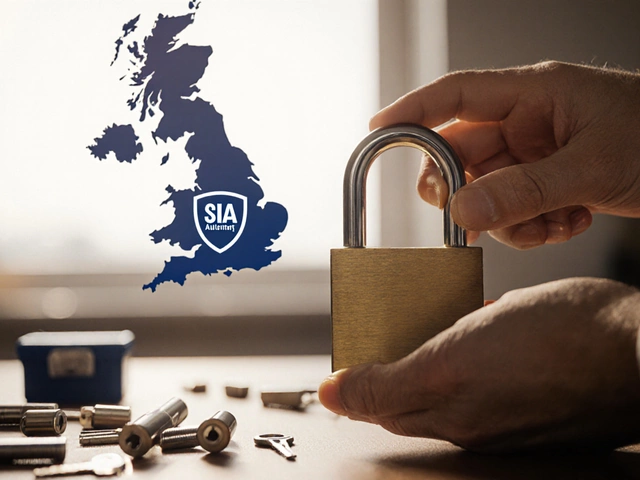
Ever wondered if you need to be a math whiz to fix a leaky pipe? You might be surprised! Plumbing does involve some math, but it's not rocket science. So if algebra makes your head spin, don't worry too much. Let's break down what's truly needed.
When it comes to plumbing, most of the math you'll use is pretty basic. We're talking about things like measurements, fractions, and maybe a little bit of geometry. For example, you'll often measure pipes and need to calculate angles, which is where understanding basic math comes in handy.
But here's the thing—you don't need to solve complex equations or pull out a graphing calculator. Simple math forms the backbone of what plumbers deal with day-to-day. Plus, many training courses teach you all the math you'll need as part of the curriculum, so you're not left scratching your head wondering how long a piece of pipe needs to be.
- Introduction to Plumbing and Math
- Basic Math Skills in Plumbing
- Real-World Math Applications
- Enhancing Math Skills
- Alternative Skill Routes
- Conclusion: Is Math a Must?
Introduction to Plumbing and Math
Have you ever thought about what goes on behind the walls when a plumber works their magic? It's not just about wrenches and pipes. Math plays a role too! But before you worry, don't sweat it—advanced math isn’t typically part of the plumbing gig.
In the world of plumbing, having a grip on basic math can make life a lot easier. It helps with things like calculating area, figuring out dimensions, and understanding flow rates. Think about measuring pipe lengths or calculating the right water pressure for a new bathroom fixture. This is where math sneaks its way in.
Let’s look at some real-world scenarios. Say you need to install a new sink. Knowing the difference between centimeters and inches can prevent a lot of headaches. Or if you’re cutting pipes, understanding fractions ensures you make precise cuts for a snug fit.
Why Math Ain't As Scary As It Sounds
You don't need to be Pythagoras. The math involved is mostly stuff you learned in school, like addition and subtraction, maybe a little geometry now and then. Plus, most plumber training courses will guide you step-by-step. They teach everything you'll need on the job, so you're not just thrown into the deep end.
For example, suppose you're working with a water heater. You might need to know the volume, right? Many plumbers use a simple formula to calculate it: length × width × height for rectangular tanks. Now, that's not too scary, is it?
At the end of the day, while math skills can be helpful, they're just one piece of the puzzle. Hands-on skills and problem-solving take you far in plumbing.
Basic Math Skills in Plumbing
Alright, so let's get into the nitty-gritty of the math side of plumbing. You might not think about math every time you see a faucet, but there's a bit of it going on behind the scenes. Understanding some basic plumbing math can make life a lot easier when you're trying to solve problems on the fly.
What kind of math are we talking about here? Well, it's mostly basic arithmetic, ratios, and a smidge of geometry. Let's break it down further.
Measurements and Arithmetic
First off, measurements are a huge deal in plumbing. You need to know how to measure the right length of pipe, and you can't just eyeball it all the time! You'll often add or subtract fractions and decimals when cutting pipes or fitting pieces together. It's about accuracy. A millimeter off, and you're dealing with leaks or inefficient systems. According to John Davis, a seasoned plumber and author of 'The Practical Plumber,'
"Knowing your way around a tape measure and being quick with simple math can make or break your plumbing work, especially when you're on the clock."
Using Geometry for Angles
Geometry might bring back memories of high school, but in plumbing, it's mostly about understanding angles. When installing pipes, you have to make sure they're angled correctly so that water flows efficiently. Nothing fancy, but knowing how angles work ensures you avoid unnecessary water pressure and blockages.
Conversion and Practical Application
Another thing you'll need is the ability to convert units. Sometimes you'll be dealing with metric units, sometimes with imperial. A good plumber knows how to switch back and forth without losing track. This is key when you're ordering parts from different suppliers or working in different regions.
Putting it All Together
If you're thinking of diving into a plumber training course, these math skills can really help. Most courses will cover the math you need, but coming in with a basic understanding never hurts. Remember, it's mostly practical stuff—how to measure, calculate, and convert efficiently. Start practicing these skills, and you're already ahead of the game.
Real-World Math Applications
So, how does math come into play once you're out in the field as a plumber? Let's break it down. Whether you're installing a new toilet or fixing a dripping faucet, math creeps into almost every task you handle.
Calculating Pipe Lengths and Diameters
One of the most common math tasks plumbers face involves measuring pipe lengths and diameters. Say you need to replace a section of pipe—you'll need to know how long that piece should be. Using a tape measure is straightforward, but you might also have to calculate additional length for pipe fittings and bends.
Knowing how to work with simple formulas helps make sure everything fits right the first time. For instance, understanding pi (that sneaky number 3.14159) can be a lifesaver when estimating the circumference of circular pipes and fittings.
Water Pressure and Flow Rates
Besides measurements, plumbers also use math to get water pressure and flow rates under control. To ensure a strong but not overwhelming flow, you'll need to calculate how much force is needed to push water through the pipes. This typically involves understanding the relationship between pressure, flow rate, and pipe diameter.
Got a leak? You'll need to calculate the water flow rate to determine how much water is lost over time. This helps both in billing clients accurately and advising them on how serious the issue is.
Time and Cost Estimation
Lastly, being able to do some quick math helps with estimating time and costs—a crucial part of running a profitable plumbing business. By figuring out how long a job should take and costing out materials, you can provide accurate quotes to customers. This skill involves a bit of math, and yes, it might take a little practice.
These math applications aren't just random tidbits; they are essential skills that help you become a resourceful and efficient plumber.
| Task | Math Requirement |
|---|---|
| Measuring Pipe Length | Basic Length Calculation |
| Estimating Flow Rates | Understanding Pressure and Volume |
| Cost Estimation | Simple Budgeting Calculations |

Enhancing Math Skills
If you're keen on boosting your math abilities for a career in plumbing, you're on the right track. Even a small improvement can make a big difference. Let’s look at some practical steps you can take.
Online Resources and Apps
There’s no shortage of resources these days. Apps like Photomath or Khan Academy offer beginner-friendly tutorials on basic math concepts. They’re perfect for brushing up on math you might use in plumbing, like fractions and geometry.
Community Classes
Check out local community colleges or adult education centers. Many offer courses specifically designed to improve essential math skills. They're usually affordable and sometimes even hands-on, making learning more engaging.
Practical Application
Sometimes the best way to learn is by doing. Try measuring different things around your house—pipes, door frames, and furniture. Practice dividing those measurements into different sections and calculating areas or volumes. It’s a direct way to see how math works in real life.
Study Groups
Join a study group or a forum online where others share tips and tricks for improving math skills in plumbing contexts. Learning with others can provide new perspectives and keep you motivated.
| Resource Type | Examples |
|---|---|
| Apps | Photomath, Khan Academy |
| Classes | Local Community Colleges, Adult Education Centers |
| Online Forums | Reddit, Specialized Plumbing Forums |
Remember, the goal isn’t to become a mathematician but to be comfortable with the basics required for plumber training and everyday tasks. A little regular practice can go a long way, making your ventures in plumbing smoother and more enjoyable.
Alternative Skill Routes
Not everyone who's great at plumbing aced their math tests in school. Luckily, there are other ways to beef up your plumbing game without relying too heavily on math. Let's dive into some alternative skills and routes that can make life a whole lot easier for those entering the plumbing trade.
Hands-On Learning
One of the best ways to get good at plumbing without focusing too much on math is through hands-on learning. Apprenticeships offer a fantastic route into the trade and let you learn directly from experienced pros. You'll pick up tricks of the trade, like how to measure pipes accurately and use tools without overthinking the math.
Using Technology
Technology is your friend! Plumbing tech tools, like laser measurement gadgets and pressure calculators, do a lot of the math automatically. This can save you time and prevent errors, letting tech handle the complex stuff while you focus on your workmanship.
Developing Soft Skills
Believe it or not, soft skills like communication and teamwork can also be crucial. Being able to explain what you're doing in simple terms to a customer or colleague can sometimes be just as important as measuring correctly. Soft skills make you a better all-around professional.
Focus on Problem-Solving
Plumbing isn't just about pipes and joints; it's about solving problems. If you're good at figuring out workarounds or clever solutions, you'll have a strong career ahead, even if your math isn't top-notch. Problem-solving is a skill that can often outweigh pure technical ability.
Industry Courses and Workshops
There are tons of workshops and short courses specifically designed to help bolster your knowledge without drowning you in numbers. These are particularly helpful in teaching you practical applications and modern techniques.
So, while having a grasp of math skills can make some aspects of plumbing easier, focusing on these alternative routes can also set you up for success in the plumbing world!
Conclusion: Is Math a Must?
So, do you absolutely have to master math skills to succeed in plumbing? Honestly, not really, but a grasp of basic math is definitely useful. Most of the time, you’ll use it when measuring pipes, mixing materials, or figuring out water pressure.
Here's a comforting fact: many successful plumbers weren't math geniuses when they started. They picked up what they needed during their training courses. You don't need to be a pro at trigonometry to install a toilet or fix a faucet leak. Having a logical approach to problem-solving is more important, and that’s something you develop with practice.
Math is a Helper, Not a Hurdle
Think of math as a tool rather than a barrier. In your day-to-day work as a plumber, basic arithmetic will help with precise measurements. For example, when cutting pipes, understanding fractions ensures you get the right size every time.
If You're Nervous About Math
Plenty of resources can help you brush up on your math skills. Online courses, apps, and even some YouTube channels provide step-by-step guides specifically for aspiring plumbers. So, if you're worried, take small steps and practice with real-world scenarios like you might encounter during tasks.
In the end, having a basic understanding of math can make your job easier and more efficient. But the essential traits for plumbing success go beyond just numbers. They're about a willingness to learn, a knack for solving problems, and a good measure of patience.
So, get your toolkit ready, and don’t let math anxiety stand in your way of joining a practical and rewarding field!




